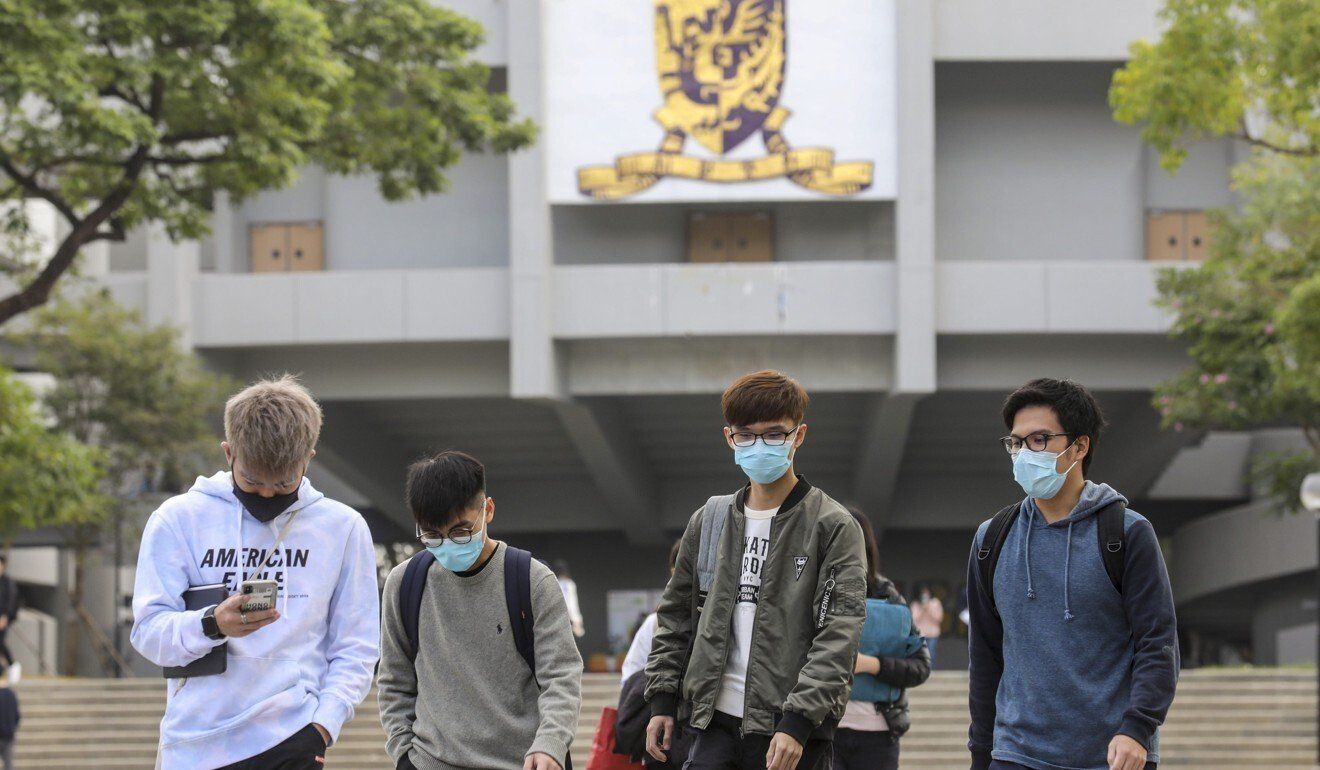Chinese University says unvaccinated residents in its dormitories must undergo coronavirus screening every two weeks and pay for them.
A Hong Kong university has said it will refuse to provide accommodation to unvaccinated students who do not undergo regular Covid-19 screening.
Chinese University said on Thursday that dormitory residents who had not been inoculated must undergo coronavirus screening every two weeks and pay for the procedure themselves, but fully vaccinated students would be exempt from the requirement.
More than half of the university’s 17,600 undergraduates live in dormitories.
In Hong Kong, certified Covid-19 tests cost HK$240 (US$31) at community testing centres.
“Vaccination is an effective way to reduce the risk of infection and prevent the spread of the virus,” a university spokeswoman said.
“The university strongly calls on all students who plan to live in its dormitories to take the Covid-19 vaccine… Those who are not vaccinated and do not comply with regular Covid-19 testing will not be allocated a place.”
But the provisional student union slammed the latest decision as unreasonable.
“Although [the university] is saying that vaccination is only a strong recommendation … the reality is that students are more or less being forced to take the jab,” said Edward Ma Wut-yin, chairman of the union’s executive committee. “Students should be given the freedom to choose whether they will get vaccinated or not.
“If [dormitory residents] have to spend up to hundreds of dollars to take regular [Covid-19] tests, that may become a financial burden … it is also inconvenient for them.”
Ma also said he believed the student unions of individual colleges would continue to discuss the matter with authorities.
Other universities including the University of Hong Kong, Polytechnic University and the University of Science and Technology do not require students to undergo regular Covid-19 testing.
 Students at Chinese University at the beginning of the second term in January 2020.
Students at Chinese University at the beginning of the second term in January 2020.
Hong Kong’s vaccination drive began in late February, but the take-up rate has remained sluggish, marred by public mistrust in the government and fears over the jabs’ side-effects.
Less than 15 per cent of the city’s 7.5 million people have received at least one jab as of Wednesday, and achieving herd immunity through vaccination remains a distant goal.
The government expanded the vaccination programme on April 23 to cover those aged 16 or above.
More than 95,000 people aged 20 to 29 and about 13,000 aged 16 to 19 have received their first vaccine dose.
Covid-19 testing and vaccination are not currently mandatory at schools.
Two vaccines – the German-made BioNTech and China’s Sinovac – are available free to all Hong Kong residents and members of other specific groups, such as the city’s 370,000 domestic helpers.
Officials have emphasised that the vaccination programme is voluntary but introduced a slew of incentives to encourage more people to get jabbed.
The government late last month eased social-distancing restrictions for restaurants, including allowing longer dine-in service hours, while bars were permitted to reopen after months of closure although they must ensure staff and patrons have received at least one vaccine shot.
Arrivals who are fully inoculated can also have their quarantine period shortened, while from May 26, fully vaccinated residents will be able to join a travel bubble with Singapore without undergoing quarantine.















